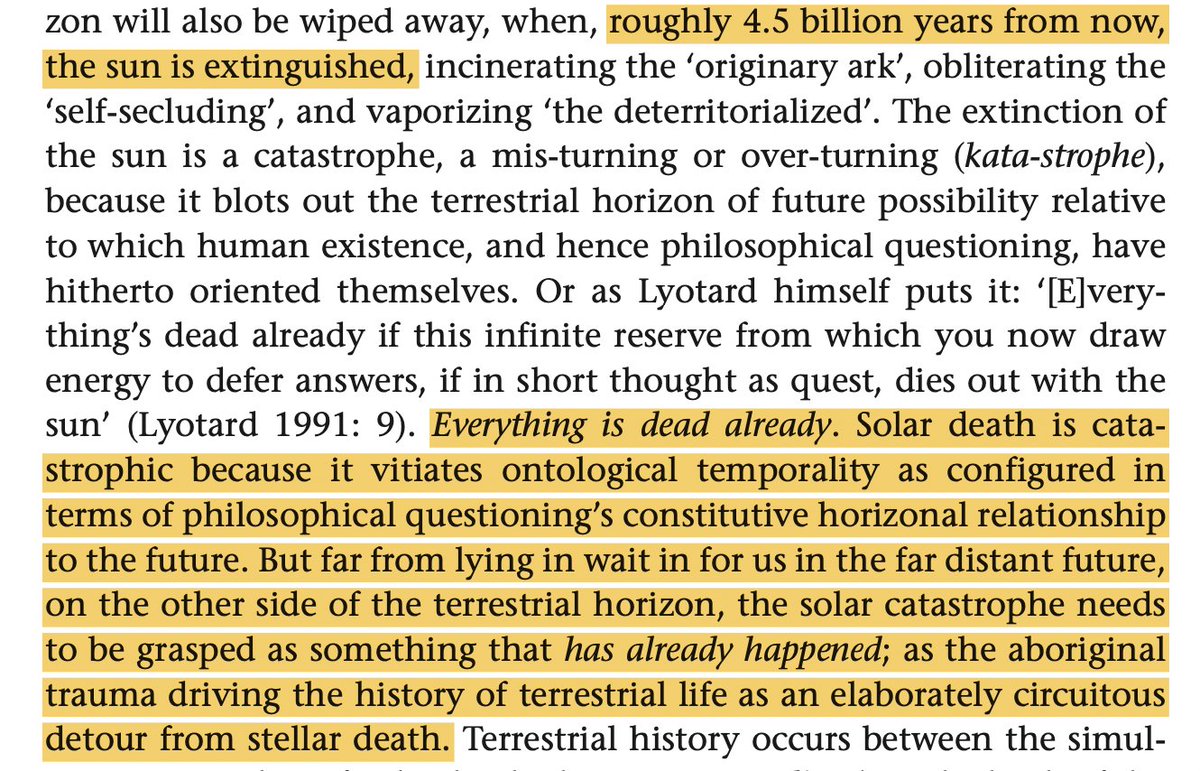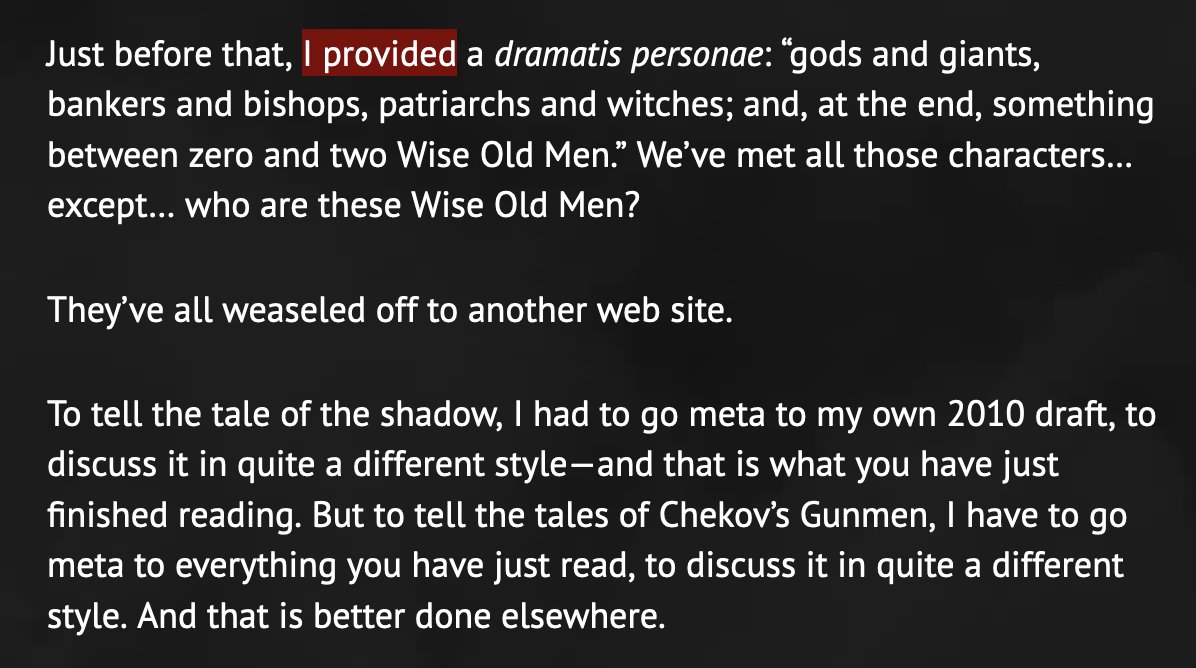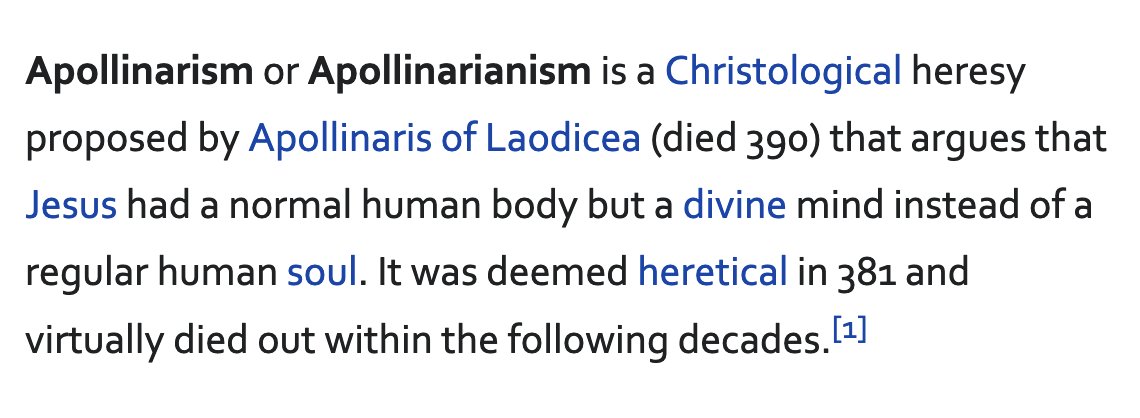
Still haunted and chewing on @juliagalef’s saying she removed most citations of psychological studies from her recent _Scout Mindset_ because details are quite likely false.
I cite academic psychology sometimes. I might like to cite this study:
I cite academic psychology sometimes. I might like to cite this study:
https://twitter.com/Meaningness/status/1442348920080793616
@juliagalef The finding of the study I believe is true and important, based on observing myself and (it seems!) a hundred other people. And maybe it’s common sense knowledge as well! “You need to get out of your head and go outside and do something fun,” says Mom when you are a moody 15-yo.
@juliagalef (For the record Mom’s advice is confirmed here by “Self-Perpetuating Properties of Dysphoric Rumination,” Sonja Lyubomirsky and Susan Nolen-Hoeksema, Journal of Personality and Social Psychology 1993, Vol. 65, No. 2, 339-34.)
@juliagalef Am I going to read the experimental details here and ask hard questions about whether they got it right, and therefore whether I should believe it? No I am not.
I do that *sometimes*—often when I don’t want to believe the conclusion and want to find the fatal scientific error :(
I do that *sometimes*—often when I don’t want to believe the conclusion and want to find the fatal scientific error :(
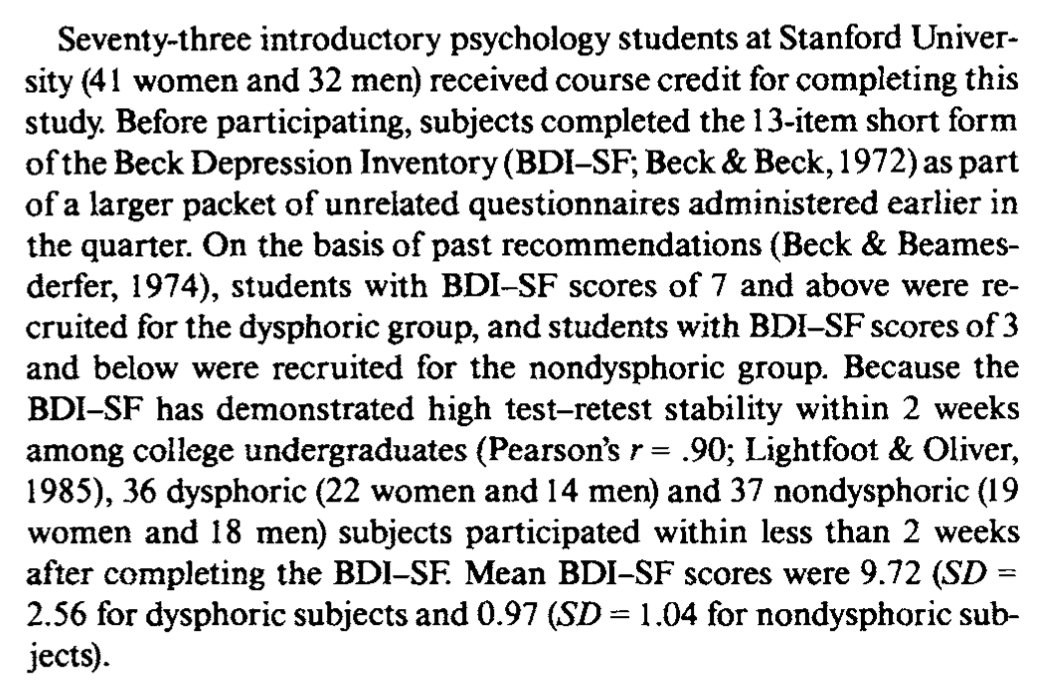
@juliagalef So what is the value of reading this paper non-carefully? It confirms something I already believed. Should I believe it harder now? I in fact do. Should I?
Probably not because p<0.03 …
Probably not because p<0.03 …
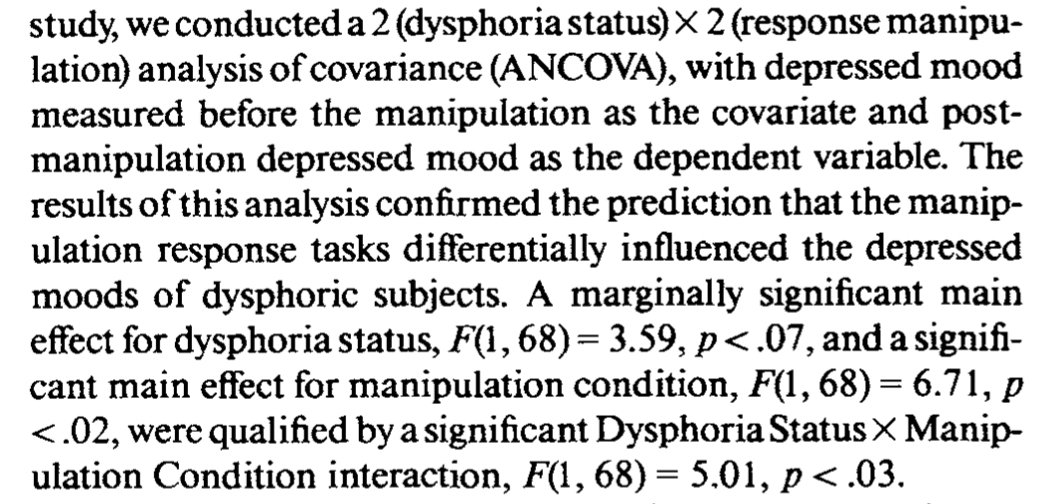
@juliagalef Introspecting, I think it’s something more like “*something* along these general lines is clearly true, and I can tell from the paper that these people have been thinking about it really hard for several years, and they’re generally reasonably clueful, ->
@juliagalef -> and they’ve figured out a more specific version of “get out of your head and go do something fun” which seems insightful, and then they did a fancy ritual that can sometimes indicate that you’re wrong, and it didn’t, so probably it’s roughly right.”
@juliagalef And this used to work a lot of the time. Where academic psychology went wrong was in taking the ritual seriously, so if it says showing people snuff videos cures depression, p<0.03, you give a TED talk, write a bestseller, & schools start showing depressed teenagers snuff videos.
• • •
Missing some Tweet in this thread? You can try to
force a refresh


